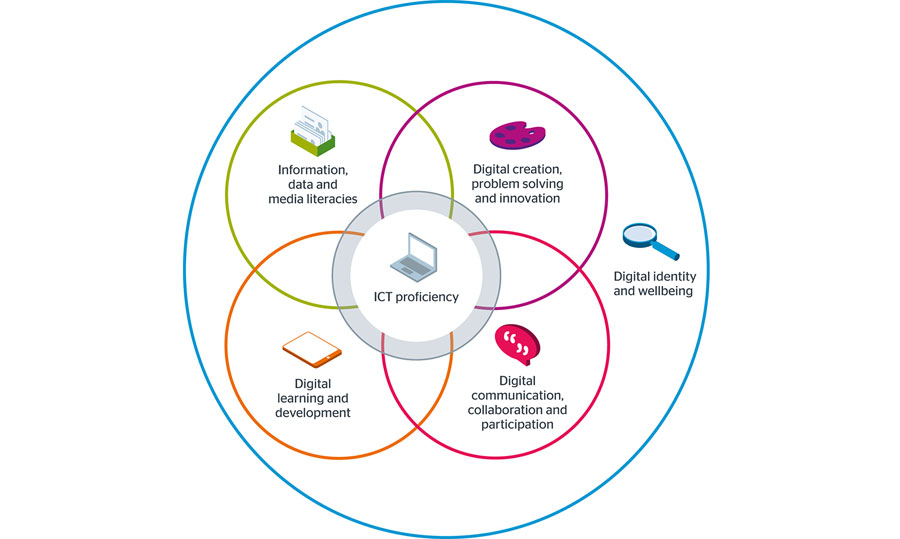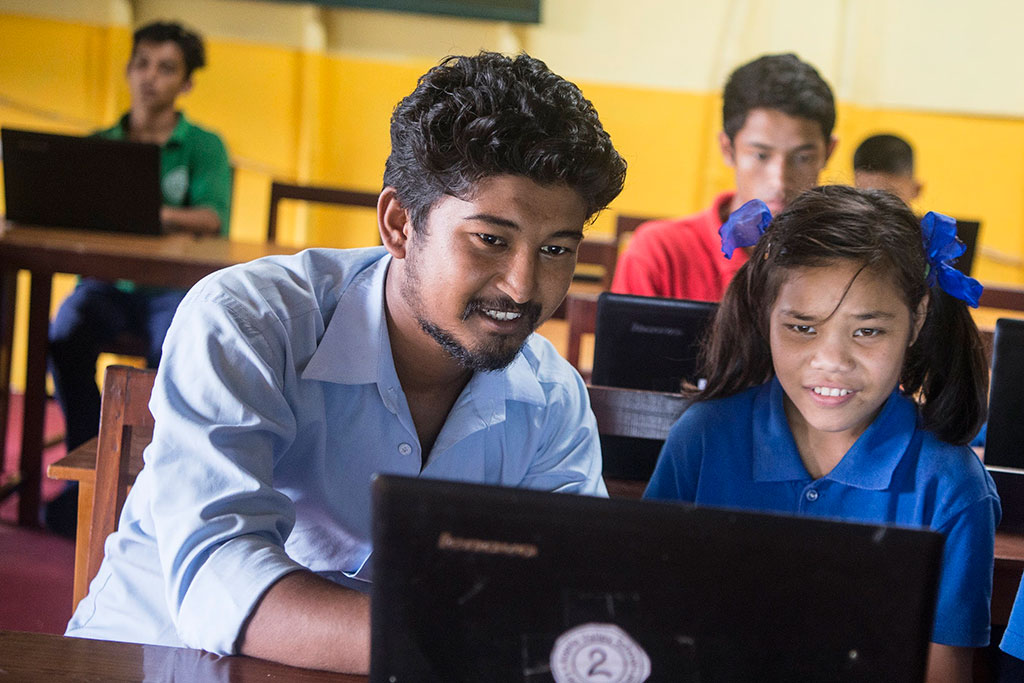The importance of equitable development of digital literacy
Being digitally literate is essential for inclusion in today's society. It expands opportunities and can be life saving. How can we contribute to equitable digital literacy development worldwide?


The expansion of the internet and the following digital transformation has brought great opportunities for many people. By tapping the keyboards on laptops, or by opening the google app on smartphones, people have access to infinite amounts of knowledge. Knowing how to navigate both the internet and the hardware enables us to learn new skills whenever we want. We can learn new languages by downloading language apps, or learning how to code by watching YouTube videos.
The endless opportunities to expand our knowledge puts us at a great advantage when searching for work, applying for education, or moving to new places. Unfortunately, access to the internet or the required hardware is not readily available and accessible everywhere, and its expansion has brought with it great divergence. A monthly internet subscription can be costly, computers and smartphones expensive and perhaps unavailable, as well as the challenge of charging the devices. Additionally, being able to navigate the internet and use the tools is important to fully benefit from the internet.
48percent’s second program line is facilitating higher levels of digital literacy. We are eager to explore the concept, challenges, and opportunities of digital literacy and the aim of this blog is to answer what digital literacy is and why it is important.
Understanding Digital Literacy
With the development and expansion of the internet and information and communication technologies (ICT’s), the definition of digital literacy was expanded to embrace its usage. Jo Coldwell-Neilson defines digital literacy as:
‘The ability to identify and use technology confidently, creatively and critically to meet the demands and challenges of living, learning and working in a digital society’.
Additionally, she highlights how people consistently have to learn how to navigate and utilize new tools and platforms in order not to fall behind, depending on the development in technology. Digital literacy is not static, but rather a skill that consistently needs to be maintained. She also emphasizes that digital literacy is about knowing the basics and building on those basic skills through the social use of the technology, instead of knowing everything about computers. A focus on basic skills and gradual learning will be more sustainable, because it removes potential barriers people might feel when presented with something unknown.

Why is digital literacy important?
Being able to navigate the internet and the tools in a safe, responsible, and effective way is important. It gives access to all parts of modern society. In the western world, public services such as banking and healthcare are to a large degree digitized, meaning that the easiest and most efficient way to pay bills, transfer money, or source health information, is to do so online. As highlighted in the conclusion of J.E. Chang’s article not all people are able to participate in the rapid transition towards digital healthcare, which can lead to an increase in disparities.
Many educational institutions have moved parts of their curriculum, communication, and assessments from in-person to online. The World Economic Forum shows how the gradual implementation of digital tools in education accelerated significantly during the Covid-19 pandemic. The abrupt shift made the gap between the digital literate and the digital illiterate more apparent. Furthermore, Frontiers explain how parents’ usage and familiarity with technology often determines a child’s digital abilities. Children lacking digital knowledge, or children in families where the parents are unable to navigate the new learning environment, fall behind compared to those who knew how to operate within a digital space.
Lastly, having the knowledge on how to safely navigate the internet and the hardware is essential to ensure one’s online and offline safety. Knowing what increases and decreases personal security online is fundamental to protect data and personal information, such as health records, banking details, or private conversations. Digital literacy encompasses all these various aspects.

Developing digital literacy for the future
In 48percent’s view, access to connectivity is not only physically having the hardware or the connection. Through our projects, we have come across instances where people that have access to the internet, do not know how to operate it, which ultimately hinders the people in question equal opportunities. We aim to contribute to closing the digital literacy gap through the projects we choose to fund. Several of our projects are specifically focused on increasing levels of digital literacy. We believe that digital literacy is an integral part of equitable access to connectivity.
In the growing age of technology and the expansion of different digital tools and platforms, it is important to monitor whether the tools are suited and available for all users. Finding solutions to the digital literacy challenges requires innovative ideas to ensure that people with limited digital skills are included. Closing the digital divide will not be possible without a particular focus on digital literacy.